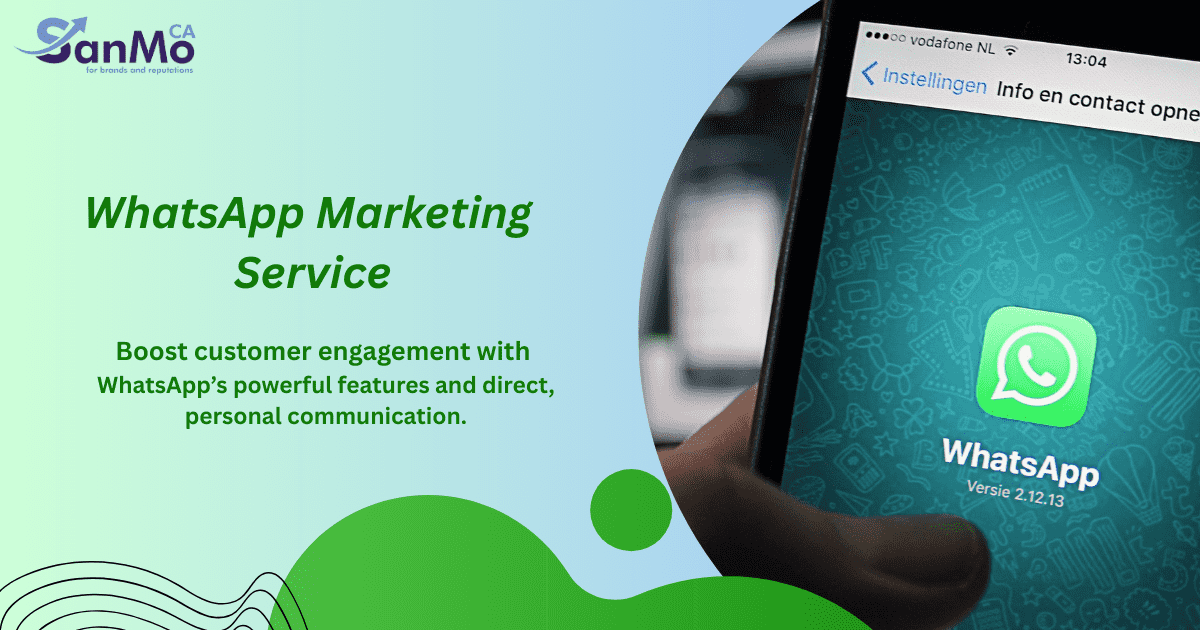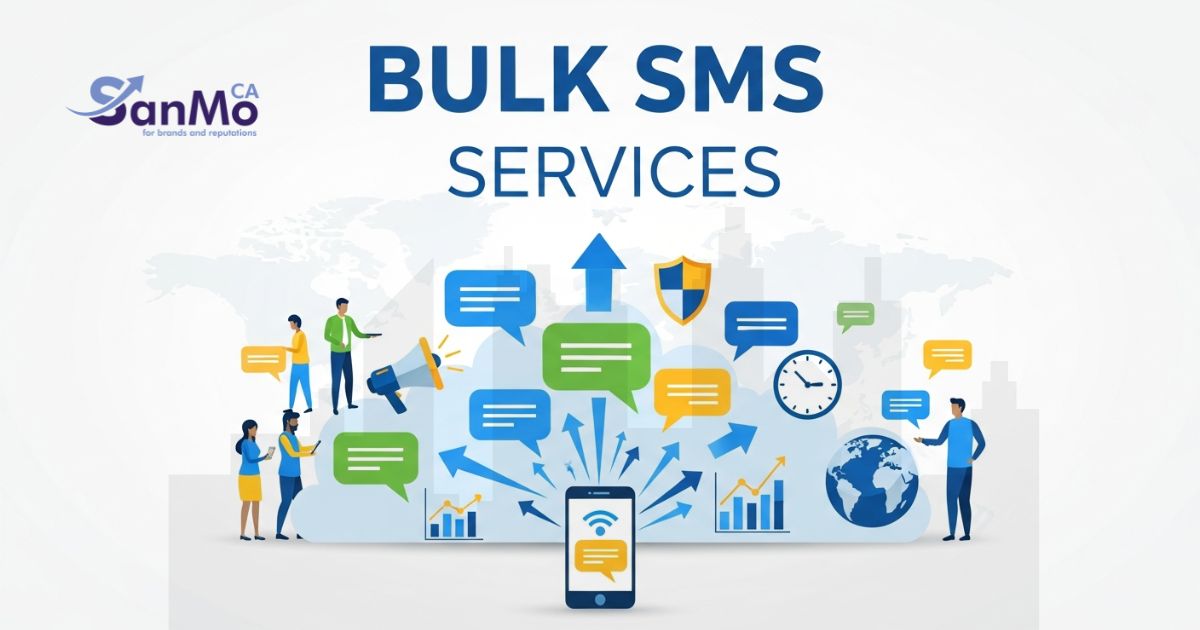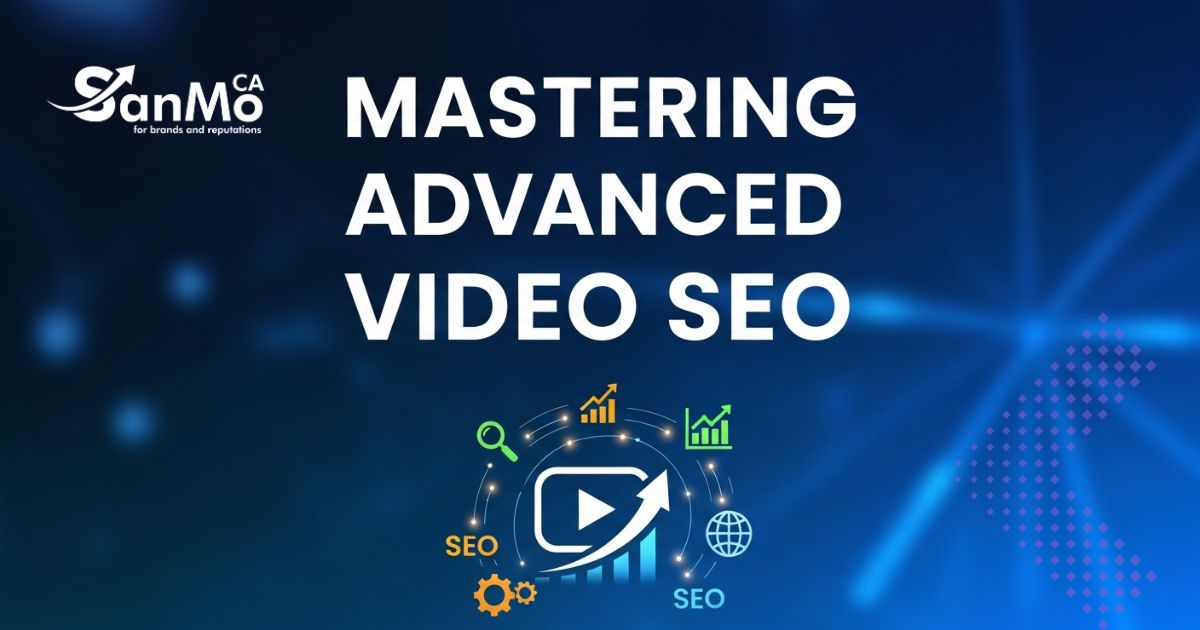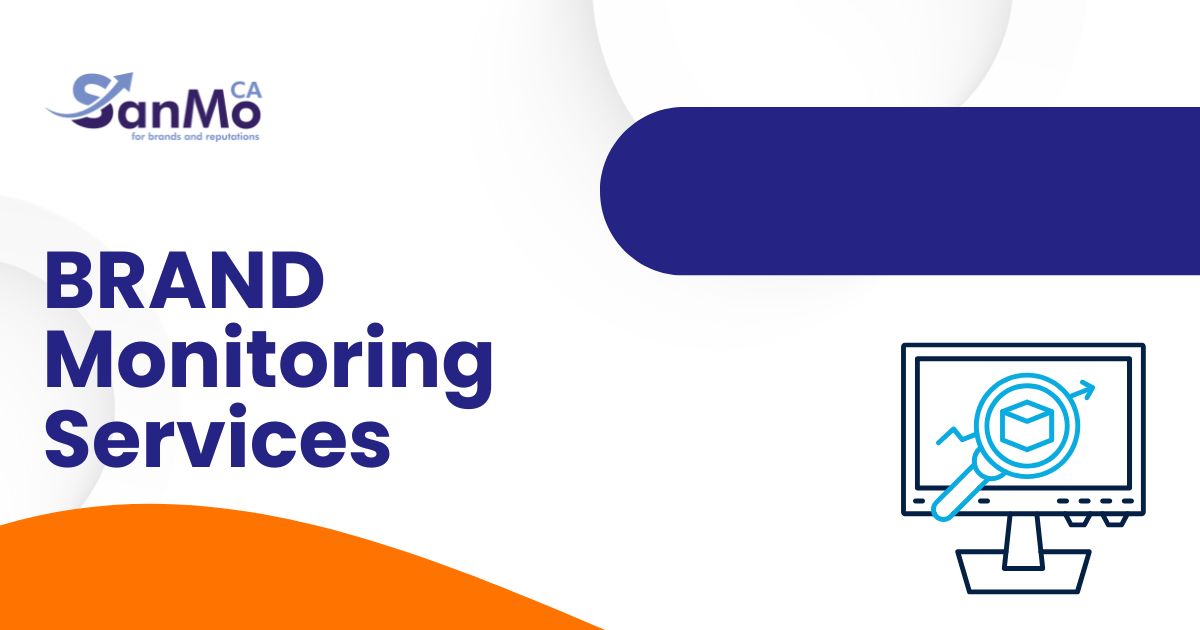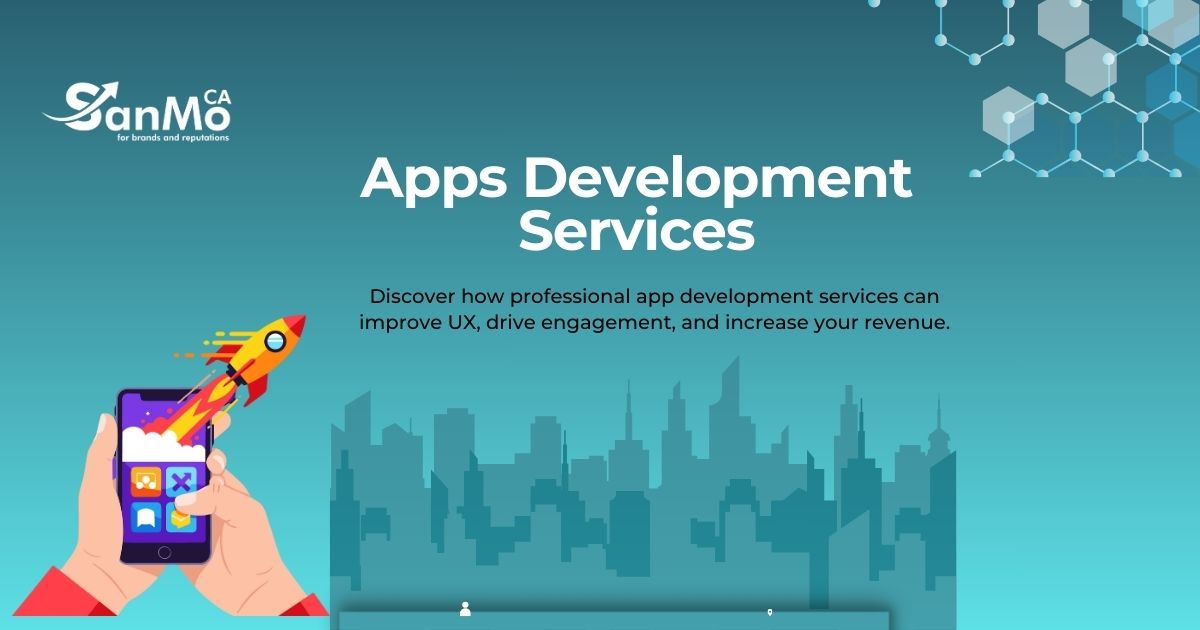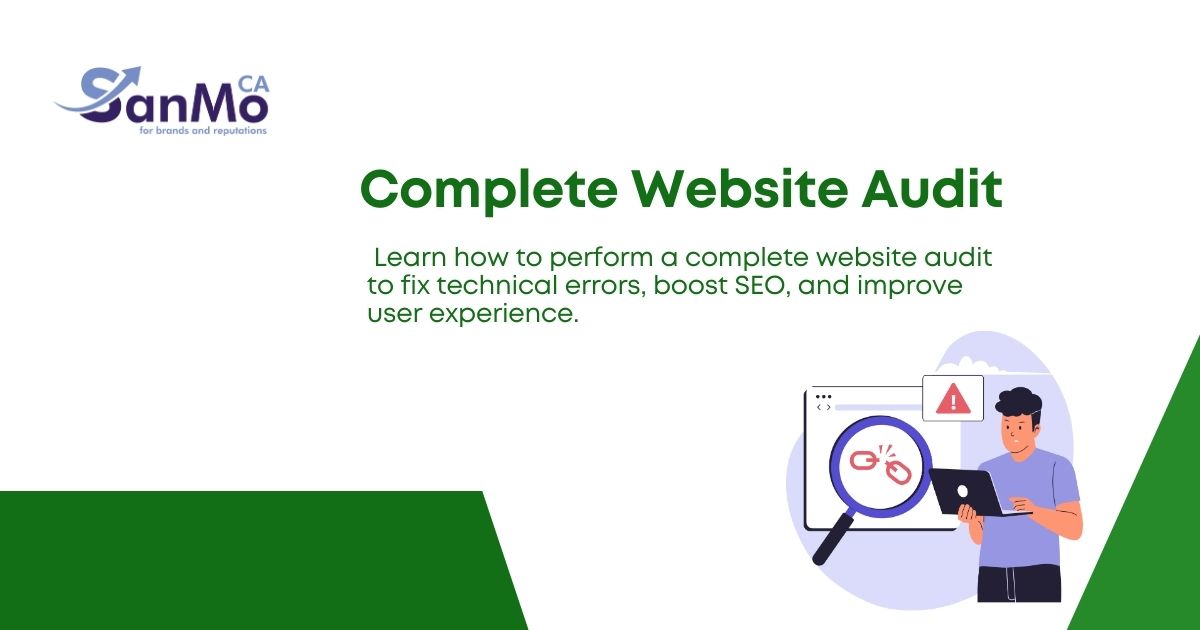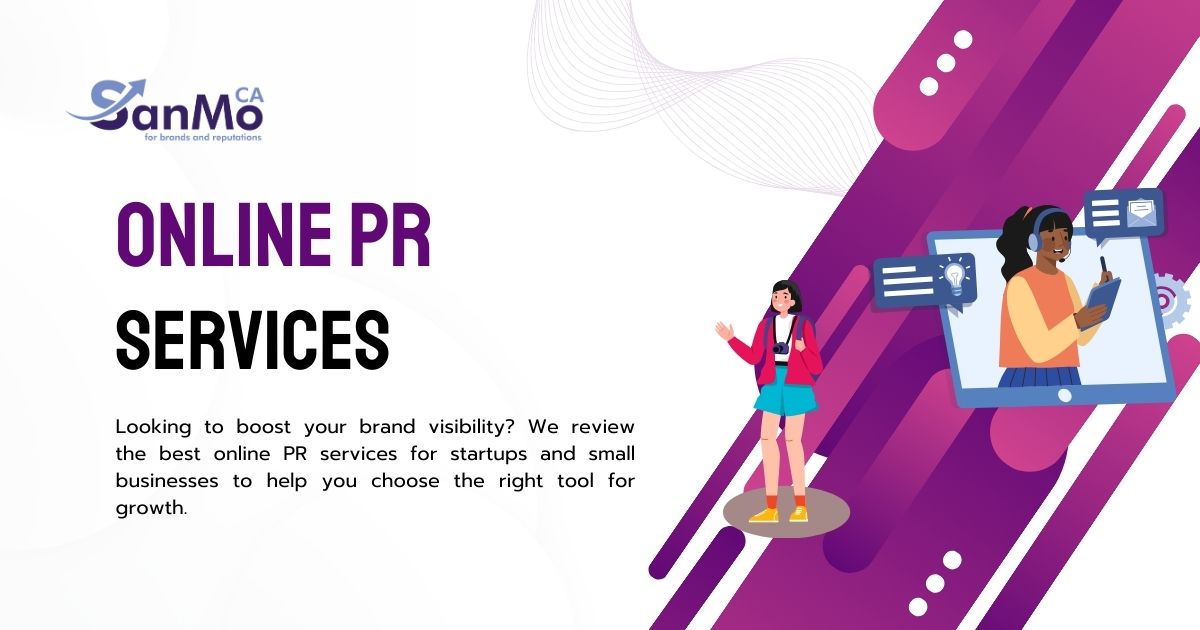Messaging apps have permanently changed the way businesses communicate with their customers. Among these apps, WhatsApp stands out with over 2 billion active users globally. From small startups to global enterprises, businesses are increasingly turning to WhatsApp marketing services to foster stronger customer relationships and amplify their reach.
This blog dives deep into WhatsApp marketing solutions, their key benefits, and how you can leverage its features to grow your business. Whether you’re a marketer or a business owner, this guide will help you unlock the full potential of WhatsApp marketing.
What is WhatsApp Marketing?
WhatsApp marketing refers to the use of WhatsApp to send direct messages, updates, offers, or promotions to potential and existing customers. Combining the convenience of direct messaging with the power of automation, WhatsApp has become a powerful tool in a marketer’s toolkit. With its high open rate (around 98%) compared to emails, WhatsApp ensures your message is seen and acknowledged.
Why Are Businesses Choosing WhatsApp for Marketing?
WhatsApp isn’t just a messaging app; it’s a customer engagement powerhouse. Here’s why businesses love it:
- Massive Reach: WhatsApp has a global presence, making it an ideal platform to connect with millions of users.
- High Engagement: Messages on WhatsApp have much higher open rates compared to traditional channels like emails or SMS service.
- Direct Personalization: WhatsApp allows for tailored communication that feels personal and relevant to each customer.
- Rich Media Support: Send videos, documents, images, or voice messages to enhance engagement.
- Cost-Effective: It’s an efficient way to deliver high-impact campaigns at relatively low costs.
Key Features of WhatsApp Marketing Services
WhatsApp marketing offers innovative functionalities that can transform how your business interacts with its audience. Here’s a look at some of its most effective features:
1. Broadcast Messaging
Broadcast messages allow you to send bulk messages to a list of customers while maintaining personal privacy for recipients. This is an incredible feature for announcements, promotions, or updates.
Example: A local clothing store can use broadcast messages to notify customers about a flash sale or new arrivals.
2. Automated Responses with WhatsApp Business API
The WhatsApp Business API allows you to set up automatic messages that acknowledge inquiries, share information, or process requests 24/7. These automated workflows enhance customer experience while cutting down response time.
Example: An eCommerce business can set up automated order confirmation and delivery updates to keep customers informed in real-time.
3. Interactive Buttons
Make customer interaction seamless with built-in buttons for quick replies or call-to-action prompts like “Buy Now” or “Learn More.”
Example: Restaurants using WhatsApp can add “Reserve a Table” buttons for an easy and hassle-free booking experience.
4. Group Messages
WhatsApp allows businesses to form groups for different segments of their customers. Whether it’s a VIP loyalty program or a community of enthusiasts, group interactions boost brand connection.
Example: A gym might create exclusive WhatsApp groups for fitness challenge participants.
5. Analytics and Insights
Track engagement metrics like message delivery, open rates, and click-through rates using WhatsApp analytics. This data allows marketers to refine campaigns and target customers more effectively.
Steps to Build an Effective WhatsApp Marketing Strategy
To maximize the benefits of WhatsApp marketing, it’s important to have a clear plan in place. Follow these six steps to get started:
Step 1. Create a WhatsApp Business Profile
First, download the WhatsApp Business app or use the API for advanced functionalities. Set up your profile with your business name, address, operating hours, and a bio that reflects your brand identity.
Step 2. Build Your Audience
Gather your audience list through opt-in forms on your website, social media platforms, or in-person interactions. Compliance with data protection regulations like GDPR is crucial here.
Step 3. Segment Your Contacts
Divide your customers into meaningful categories (e.g., location, purchase history, preferences) for highly targeted campaigns.
A travel agency can segment customers based on their preferred destinations like “beach vacations” or “adventure tours.”
Step 4. Leverage Personalization
Personalize messages to make communications relevant. Use the customer’s name, reference their browsing or purchase history, and tailor recommendations accordingly.
Example:
“Hi Sarah, we noticed you loved our winter collection! Here’s an exclusive 20% off for your next purchase.“
Step 5. Run Engaging Campaigns
Design campaigns that are visually appealing and align with customer interests. Use images, GIFs, or videos along with text to make your message compelling.
Example:
- Share a short video showcasing your new product in action to increase anticipation.
Step 6. Monitor and Optimize
Pay attention to performance metrics such as delivery rates, response times, and engagement levels. Use these insights to refine and enhance your marketing approach.
Use Cases of WhatsApp Marketing Across Industries
WhatsApp marketing offers endless opportunities for businesses of all sizes. Here are some real-life examples of how industries are reaping its benefits:
1. Retail and eCommerce
- Promote flash sales and discount codes directly to mobile devices.
- Send product recommendations based on browsing history.
Example:
A fashion retailer notifies customers about new arrivals with a 10% exclusive WhatsApp coupon.
2. Travel and Hospitality
- Share travel updates, boarding details, and personalized holiday packages.
- Allow users to make hotel bookings or itinerary changes effortlessly.
Example:
A travel agency sends timely reminders for flight check-ins along with a WhatsApp boarding pass.
3. Education
- Share class schedules, exam announcements, and admissions information with students.
- Deliver learning content such as PDFs, presentations, or links to live sessions.
Example:
An online education platform sends a downloadable study guide via WhatsApp.
4. Healthcare
- Automate appointment confirmations and reminders for patients.
- Offer quick access to lab reports or prescriptions.
Example:
A local clinic uses WhatsApp to send test results securely to patients.
5. Event Management
- Use WhatsApp to manage RSVPs and share event schedules with attendees.
- Provide real-time updates or changes during the event.
Challenges and Tips for Success
While WhatsApp marketing offers numerous benefits, there are some challenges to keep in mind:
- Regulatory Compliance: Ensure all communications are GDPR or CCPA-compliant and permission-based.
- Avoid Over Messaging: Sending too many messages can frustrate customers, leading them to unsubscribe.
- Quality Content: Ensure messages add value rather than overwhelming users with promotions.
Pro Tip: Always focus on providing value. Whether sharing a discount code or a quick tip, your message should feel useful, not intrusive.
Transform Engagement with WhatsApp Marketing Today
WhatsApp marketing is not just a trend; it’s an essential tool for driving meaningful customer relationships and achieving business growth. From automated responses to personalized promotions, its features can revolutionize how your brand communicates.
Why wait? Unlock the true power of WhatsApp marketing and witness the impact it has on your customer engagement. Sign up for a free trial of [YourCompany’s Name] WhatsApp Marketing Solution today and start paving the way for better communication and success.

